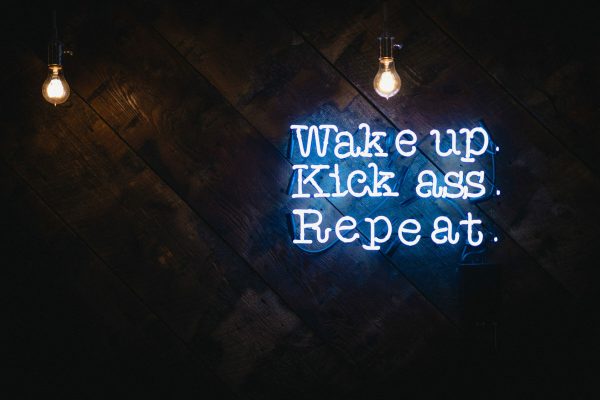So you’re sitting at your computer, you haven’t spoken to a real person all day and you’re feeling a bit “Blah”, for want of a better word. We’re all aware of the benefits of physical exercise, but what about giving your mind a good workout? After all, as a website developer, your mind is your greatest asset. Below are three ways you can improve your cognitive strength with the direct spin-offs of improved work output, and making life more fun!
1) Know your learning style and use it to your advantage
Dr Howard Gardner developed the globally recognised ‘theory of multiple intelligences’ in 1983. In a nutshell, Gardner identified seven (now 8) distinct intelligences, the possession of which affects the way people remember, perform, and understand when learning. Below are the 8 intelligences – see if you can identify with a few of them. There are online questionnaires you can do to discover your intelligences, but I found it pretty easy to identify my strengths by just looking through the chart.
| Intelligence type | Strengths |
| Linguistic | words and language |
| Logical-Mathematical | logic and numbers |
| Musical | music, sound, rhythm |
| Bodily-Kinesthetic | body movement control |
| Spatial-Visual | images and space |
| Interpersonal | other people's feelings |
| Intrapersonal | self-awareness |
| Naturalist | natural environment |
So if you’re a great coder and love that aspect of the game, your main intelligence type might be Logical/Mathematical. Alternitively, if you have a keen eye for design, colour and typography, Spatial-Visual might be your thing. Maybe you're super-skilled at creating content (when the client fails to provide you with anything on time or worthwhile perhaps?), which means you’ve likely got the Linguistic jive happening. Have a think about what aspect you really enjoy and excel at in your day-to-day work and that’s more than likely your primary “intelligence”.
It’s important to note that you shouldn’t get too hung up on this sort of theory. Be aware of you favoured style/s of learning, but don’t pigeonhole yourself. Just because you favour one or two areas, doesn’t mean you can’t develop strong skills in other areas.
So how can you use this information to assist you as a website consultant?
My son has a weekly homework sheet that is based on this theory. It outlines about 15 different tasks that have the same learning outcome for a specific topic. Each child needs to complete 3 tasks from the sheet, but can choose from any of the tasks offered in the list. Some of the tasks involve making things, some involve research and writing, others involve drawing or story-telling. The idea is that each child has the opportunity to learn and excel by submitting work that showcases his/her strengths.
You can do the same thing when expanding your knowledge…
In your own business, it’s essential to continually up-skill in order to be on top of your game. Whether it’s improving your marketing skills, setting your KPI’s, or learning new skills or systems; understand the way in which you learn best and use it to your benefit. Listen to a podcast about marketing if you take things in best audibly; download an ebook if the written word is more your thing; use infographics if you’re more visual; or go to a class or join a forum if you need people to bounce ideas off. There are so many possibilities.
The best advantage of knowing your learning style, is that by improving your skills in a more natural and enjoyable way, you’ll learn faster and better. The results will ultimately yield a more productive and skilled work output. Cue the better clients and better fees!
2) Go Wide and Deep
When meeting potential clients, Troy Dean talks about “going wide and going deep” to get to the crux of what their business actually needs. As a professional consultant, in order to do this well, you need to actually be able to walk-the-walk. How often do you ‘go wide’ in your daily life?
Let me give you an example. David Kadavy is the author of the #18 Amazon best-selling book, Design for Hackers: Reverse-Engineering Beauty. Prior to writing Design for Hackers, David founded the Design departments at two Silicon Valley startups, and freelanced for clients such as oDesk, PBworks, and UserVoice. David confesses that, “I've always been addicted to learning.” Knowing that design was his main ‘thing', he's never restricted himself to following just that learning pursuit. “I love to dance. I went to Buenos Aires for two months after I wrote my book and took private tango lessons. I’ve taken improv, sketch writing, acting classes, singing lessons, voice lessons and sailing lessons…that was great.” As well as expanding his knowledge and enjoyment of life, David can attest to these pursuits playing a role in helping him in his business life.
Expanding your mind by getting out of your comfort zone doesn’t have to be risky or adventurous. It can be as simple as choosing an area of the Multiple Intelligences in which you feel you lack strength in and working on that. For example, I know that my weakest Intelligence is Logical/Mathematical, so to ‘go wide and deep’ I challenge myself by regularly checking our Google Analytics page and attempting to make sense of it all!
Here are a few general ideas to get you started…
- Subscribe to a new blog or podcast in an area that you previously wouldn’t have thought of. Think outside the square. This article from io9 lists some interesting podcasts that will “feed your hunger for knowledge and ideas.”
- Put yourself out there by talking to at least one new person each time you’re in a social gathering. Practice going deep by finding out what their area of expertise is and engage them in conversation about this – you may even learn something!
- Move your computer mouse to the other side. By using the opposite hand, you’ll be challenging your mind to think differently. I’ve been doing this for over a year now. I swap it round each day and am now proficient on both sides. This may even help prevent RSI (well, that’s my theory!)
- Go somewhere you haven’t been before. Try a day trip, visit a museum or art gallery, or check out a concert or local event.
Dr Amantha Imber talks about the proven science behind Going Wide in her blog at Inventium
3) Enhance your brain’s cognitive strength
The neuroplasticity of your brain (the brain’s ability to make new neural connections and thus improve functioning) decreases with age. Research shows that there are several things you can do to improve your brain’s function. The mind-game apps aren’t bad, but if you really want to give your brain a workout, there are several things you can do that are proven to improve cognitive strength.
- Work in a mentally challenging job: if you’re a website developer, I’m tipping you could be doing this right now. Just ensure that you continue to challenge yourself by learning new skills or taking on projects that you think might be a bit out of your league. Staying in your comfort zone won’t do anything to increase your brain function.
- Learn to play a musical instrument: although this may be a challenge, especially if you have no musical background, think about this… neuroscientists have found that practicing and playing an instrument engages virtually every area of the brain at once. Visual, auditory and motor cortexes blazing like fireworks to promote improved memory, fine motor skills and executive function.Still not convinced? Why not take up the ukulele? We have a Uke instructor at our offices in Melbourne and he attests that it’s one of the easiest instruments anyone can learn. I’m thinking of giving it a go. I found this cool cartoon summary of how playing an instrument benefits your brain – Ted talk by Anita Collins It’s worth checking out.
- Learn a new language: Parlo Espanol? Speaking another language can help with delaying the onset of dementia and with improved mental function. Make it worth your while and book an overseas trip to keep you motivated. Here’s a very useful Spanish phrase to get you started… “Dos cervezas por favor.”Brian Clark’s Further Blog delves further into the theory of enhancing your brain’s strength in these particular areas.
So there you have it ladies and gentlemen – spark up that learning and get started earning more and having more fun! Even if you think you’re pretty darn smart, there’s always so much more we can be doing to improve our mental capability and output! I’d love to know if you decide to take something away from this and put it into practice, please let me have your feedback. In the meantime, I’ll check out those ukulele lessons and let you know how I go!






